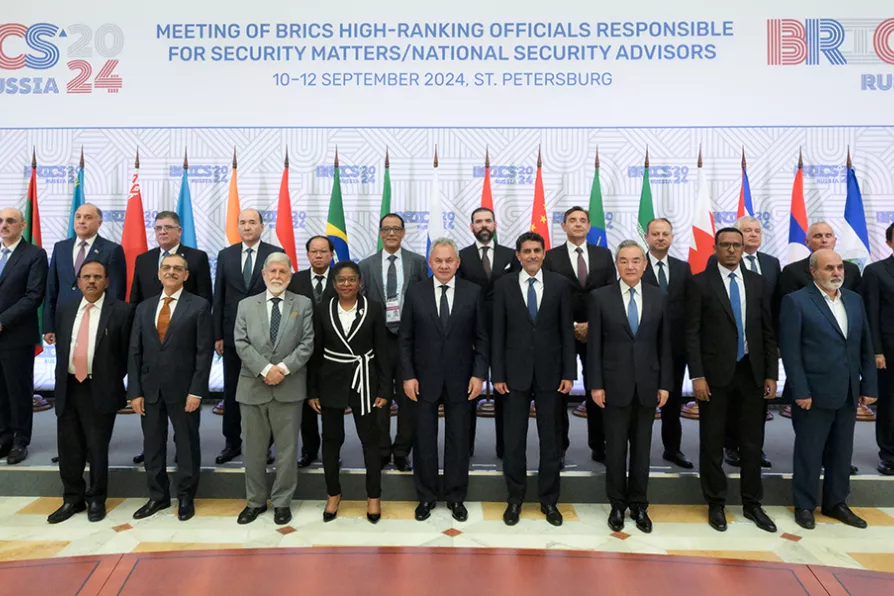By pressuring Mexico to halt oil shipments, Washington is escalating its blockade of Cuba into a direct bid for economic collapse and regime change, argues SEVIM DAGDELEN

 Russian Security Council Secretary Sergei Shoigu (centre) and other participants pose for a photo during their meeting on the sidelines of the meeting of Brics and Brics Plus High-Level Security Officials in St Petersburg, Russia, September 10, 2024
Russian Security Council Secretary Sergei Shoigu (centre) and other participants pose for a photo during their meeting on the sidelines of the meeting of Brics and Brics Plus High-Level Security Officials in St Petersburg, Russia, September 10, 2024
MOST people on the planet do not live within the borders of the former colonial powers — but they have been dominated by them for most of the last 500 years.
But the good news is we are now at a major geopolitical tipping point, and the global majority is rising up and constructing a new world.
There are no demands for change as if permission were required; the vast majority of the global population is simply going about the business of constructing a new way of doing things that breaks away from the rule of the minority.

The colonial mindset behind the governance of the UN is the reason for its inertia when it comes to conflict resolution, argues ROGER McKENZIE – but can China’s Global Governance Initiative point in a new direction of global equality?

ROGER McKENZIE looks at the gradual demise of US’s nefarious influence around the world and the complexity of impending freedom

ROGER McKENZIE expounds on the motivation that drove him to write a book that anticipates a dawn of a new, fully liberated Africa – the land of his ancestors

JENNY CLEGG reports from a Chinese peace conference bringing together defence ministers, US think tanks and global South leaders, where speakers warned that the erosion of multilateralism risks regional hotspots exploding into wider war










